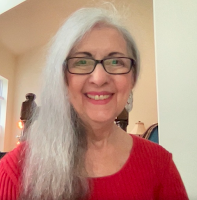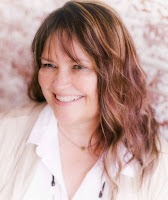Edie Melson's Blog, page 114
September 11, 2022
Social Media Basics for Writers: Deal with Unrealistic Expectations

by Edie Melson @EdieMelson
“I’m not getting any traction with social media,” is one of the complaints I hear a lot as I travel and teach writers how to connect.
There are a lot of reasons people feel this way, a few are legit, but most are just unreasonable expectations. Today I’m going to address the unrealistic exception for social media that many have.
Unrealistic Expectations for Social MediaThe more time I spend on Facebook and Twitter, the more friends and followers I’ll have. I’ve addressed this one several times, but I still hear it the most. Truthfully, after you’ve come up to speed on social media, spending more than thirty minutes a day on social media will trap you in the law of diminishing returns. This is a case of work smarter, not harder.I’m spending time talking about my book, but my sales aren’t reflecting that. If you’re spending the most of your social media updates on yourself or your product, you’ve missed the point of social media. Social media is about building one-on-one relationships, it’s NOT an advertising platform. Building relationships will increase your reach and more people will hear about your book. THAT is where your increase in sales will come. Making your social media updates all about (or even one half about) you will drive people away and you may see a decrease.Social Media is a fast way to increase my reach. Well…not so much. Like anything worthwhile it takes time—and consistency—to build a following. It took me about nine months to go from about seventy-five Twitter followers to one thousand. Then about a year to go from that to ten thousand followers.I need to stay current with all the new social media platforms. Again, not really. The thinner you spread yourself, the shallower your reach. To get to the majority of your audience who’s on social media, you need to be on Twitter and Facebook. And you need to have a place where you are blogging regularly—that can be a personal blog or a group blog. If you find another platform you love (like Pinterest) find a way to work it into your thirty minutes a day.I need to balance my time equally between Facebook, Twitter and Blogging. You do need to have a presence on all three, but you’ll find your own sweet spot. That’s where you need to concentrate your efforts. Do you have five thousand Facebook fans and only seven hundred Twitter followers? Then Facebook is your sweet spot. Spend the majority of your time there. Maintain an audience with the other two, but go with your passion. That strategy will always get you further. Beyond that, you’ll enjoy it more.A social media platform is more important than anything to sell your book to a publisher. It is important, but without an excellent product (a well-written manuscript) it’s practically worthless. And the numbers that publishers are most interested in are you subscription numbers. That’s another reason it’s so important not to spend more than thirty minutes a day on social media.Social media isn’t a fast pass to a super internet presence. As I’ve said before, anything worth having takes…well…work.
BUT that doesn’t mean you shouldn’t work at it. It can give you a distinct advantage when you’re looking for a publisher for your book, and when you’re trying to connect to readers for your book.
What expectations have you found that are unrealistic when it comes to social media? Do you struggle in a specific area—if so, share your thoughts in the comments section and we'll see if we can come up with a solution.
TWEETABLESocial Media Basics for Writers: Deal with Unrealistic Expectations, tips from @EdieMelson (Click to Tweet)
 Edie Melson is a woman of faith with ink-stained fingers observing life through the lens of her camera. No matter whether she’s talking to writers, entrepreneurs, or readers, her first advice is always “Find your voice, live your story.” As an author, blogger, and speaker she’s encouraged and challenged audiences across the country and around the world. Her numerous books reflect her passion to help others develop the strength of their God-given gifts and apply them to their lives. Connect with her on her website, through Facebook, Twitter, and Instagram.
Edie Melson is a woman of faith with ink-stained fingers observing life through the lens of her camera. No matter whether she’s talking to writers, entrepreneurs, or readers, her first advice is always “Find your voice, live your story.” As an author, blogger, and speaker she’s encouraged and challenged audiences across the country and around the world. Her numerous books reflect her passion to help others develop the strength of their God-given gifts and apply them to their lives. Connect with her on her website, through Facebook, Twitter, and Instagram.
Published on September 11, 2022 22:00
September 10, 2022
God's Hope is the Foundation for Writers When World is Falling Apart

by Martin Wiles @LinesFromGod
The news and I have a love-hate relationship. I love to know what’s taking place locally, nationally, and worldwide—but at the same time, I often hate to know what’s going on.
As Andy Taylor of the Andy Griffith show once said when reading the town newspaper: “Bad news everywhere.” The news always seems to be bad. In fact, we might find it odd when newscasters occasionally include something uplifting in their reports.
Currently on the list: COVID still runs rampant, even though we don’t hear as much about it. The President of the United States recently recovered from COVID, and soon after our first lady battled it. Monkeypox continues to spread. The war in Ukraine continues. Mass shootings are a regular occurrence. Inflation is on the rise. Airline flights experience high cancelation rates. Almost every business is short-staffed. Temperatures are rising, reflecting the effects of global warming. Drought conditions assault vast swaths of the United States. Criminals continue to ambush law enforcement officers. And that’s just the tip of the iceberg. (Now I’m really depressed.)
I don’t have any trouble concurring with what the psalmist said and asked: “The foundations of law and order have collapsed. What can the righteous do” (Psalm 11:3 NLT)? And what can a righteous writer do?
Fortunately, as believers and writers, we don’t have to allow depression or discouragement to overcome us when we hear all the lousy news. On the contrary, the bad should encourage us to do our part to change or influence what courses we can—all the while remembering God has not abdicated his throne.
Sin is the culprit behind all the bad, and Satan is the instigator of sin’s actions. He wants to destroy; God wants to build. He wants to sow discord; God intends to distribute love and hope. He thrives on discouragement, while God loves encouragement.
But we have read the end of the story, and we know who wins: God and good. This should encourage and remind us to be the light and salt this world full of dire news needs. As writers, let’s make sure we sow one accord not discord, love not hate, unity not division, and encouragement not discouragement. Often, we never realize the impact of our words, but impact they have.
So, to answer the question, “What can we do?” Wherever we are each day—and whatever we write—we can reflect the love of Christ through our actions, words, and thoughts. We can encourage others to love God and their neighbors.
Writer, what can you do to help re-establish the foundations of law and order?
TWEETABLEGod's Hope is the Foundation for Writers When World is Falling Apart, insight from Martin Wiles, @LinesFromGod on @EdieMelson (Click to Tweet)
 Martin Wiles is the founder of Love Lines from God (www.lovelinesfromgod.com) and serves as Managing Editor for Christian Devotions, Senior Editor for Inspire a Fire, and Proof Editor for Courier Publishing. He has authored six books and has been published in numerous publications. His most recent book, DON'T JUST LIVE...REALLY LIVE, debuted in October of 2021. He is a freelance editor, English teacher, author, and pastor.
Martin Wiles is the founder of Love Lines from God (www.lovelinesfromgod.com) and serves as Managing Editor for Christian Devotions, Senior Editor for Inspire a Fire, and Proof Editor for Courier Publishing. He has authored six books and has been published in numerous publications. His most recent book, DON'T JUST LIVE...REALLY LIVE, debuted in October of 2021. He is a freelance editor, English teacher, author, and pastor.Featured Image: Photo by Max Kleinen on Unsplash
Published on September 10, 2022 22:00
September 9, 2022
Why We Shouldn't View Other Writers as Competition

by Beth K. Vogt @BethVogt
I’ve learned a lot of different things since I published my first novel back in 2012. Things like:How to write a synopsis in all its various forms—one paragraph, one page, three pages or more.How to write an author bio—25 words, 50 words, 100 words or more. How to brainstorm book titles and back cover copy and press releases and more.
There’s one thing I wish I’d learned earlier in this writing journey, and it’s summed up in this quote: “Other authors aren’t your competition—they are your teammates.” Jenn Hanson-dePaula, co-founder of Mixtus Media
We all learned about competition early in our lives when we participated in gym class—don’t get me started—and team sports, like baseball or soccer or volleyball. There’s nothing wrong with competition when we remember the activity is the focus of the competition, not the other people.
Every author I know—and yes, probably every author I haven’t met—wants their books to sell well. Honestly, every author I know wants to become a bestselling, award-winning author. We might say we want readers just to like our books, but honestly? Who doesn’t imagine writing the Great American Novel? Or dream about their nonfiction book becoming a bestseller so they can hit the morning talk show circuit?
Wanting literary success doesn’t mean I plot and pray for your downfall as an author.
As authors we walk the writing road together. Sometimes we walk alongside one another. Sometimes you move ahead of me. Sometimes my pace may be faster than yours. But we are, as Jenn Hanson-dePaula said, teammates. And teammates support and encourage one another.
Support means if I see a pothole in the writing road, I’ll let you know. If I know of a detour worth taking, I’ll tell you. If you land a book contract, hit the bestseller list, or just manage your word count for the day, let me know. I’ll do a little Happy Dance for you.
That’s what teammates do.
TWEETABLEWhy We Shouldn't View Other Writers as Competition, insight from author @BethVogt on @EdieMelson (Click to Tweet)
 Beth K. Vogt believes God’s best often waits behind the doors marked “Never.” Having authored nine contemporary romance novels and novellas, The Best We’ve Been, the final book in Beth’s Thatcher Sisters Series with Tyndale House Publishers, releasers May 2020. Other books in the women’s fiction series include Things I Never Told You, which won the 2019 AWSA Award for Contemporary Novel of the Year, and Moments We Forget. Beth is a 2016 Christy Award winner, a 2016 ACFW Carol Award winner, and a 2015 RITA® finalist. An established magazine writer and former editor of the leadership magazine for MOPS International, Beth blogs for Learn How to Write a Novel and The Write Conversation and also enjoys speaking to writers group and mentoring other writers. Visit Beth at bethvogt.com.
Beth K. Vogt believes God’s best often waits behind the doors marked “Never.” Having authored nine contemporary romance novels and novellas, The Best We’ve Been, the final book in Beth’s Thatcher Sisters Series with Tyndale House Publishers, releasers May 2020. Other books in the women’s fiction series include Things I Never Told You, which won the 2019 AWSA Award for Contemporary Novel of the Year, and Moments We Forget. Beth is a 2016 Christy Award winner, a 2016 ACFW Carol Award winner, and a 2015 RITA® finalist. An established magazine writer and former editor of the leadership magazine for MOPS International, Beth blogs for Learn How to Write a Novel and The Write Conversation and also enjoys speaking to writers group and mentoring other writers. Visit Beth at bethvogt.com.Featured Image: Photo by Christina @ wocintechchat.com on Unsplash
Published on September 09, 2022 22:00
September 8, 2022
How to Keep Your Heart in Your Writing

by MaryAnn Diorio @DrMaryAnnDiorio
Heart. How would you describe it? Emotion? Feeling? That special something that touches the deepest part of you?
One Internet dictionary defines heart as "the central or innermost part of something." The heart is the core that gives something life, around which everything else grows, and from which everything else flows. Without the heart, there would be no life.
When it comes to writing, heart is what gives your writing life. Heart is that special something in your words that stirs your readers, moves them to tears—or to action. Heart is what makes your readers keep turning pages and keep buying your books.
Heart is the point where you intimately connect with your reader on a deep level.
So, how do you give your stories heart?
It all starts with your own heart.
What is the condition of your own heart? Here are a few questions to ask yourself: Is my heart full of passion for writing? If not, why not?Is my heart strong when faced with the temptation to quit writing? Will my heart persevere when faced with criticism, whether constructive or destructive?Is my heart teachable? Will it consider and apply the wisdom of those writers and editors who have gone before me? Or who are my peers? Or who are newer at writing than I am?Does my heart desire the growth and well-being of my reader more than my own fame and fortune?Your answers to these questions will reveal to you whether you have the heart necessary to bring heart to your writing.
One of my favorite quotes is found in Proverbs 4: 23: "Guard your heart above all else, for it determines the course of your life." Your writing is a part of your life. Your heart, therefore, will also determine the course of your writing.
So, what should you do if, in answering the questions above, you discovered that you came up short? That you really lack heart in the depths of your own being?
The answer is at once simple yet profound. It lies in the greatest heart that exists: the heart of God. He alone can give you heart. When you turn to Him in humility, He will share His heart with you. And when your heart is anchored in His heart, your writing will have all the heart it needs to touch the hearts of your readers.
TWEETABLEHow to Keep Your Heart in Your Writing, insight from @DrMaryAnnDiorio on @EdieMelson (Click to Tweet)
 MaryAnn Diorio writes riveting fiction from a small, quaint Victorian town in southern New Jersey where the neighbors still stop to chat while walking their dogs, the houses still sport wide, wrap-around front porches, and the charming downtown still finds kids licking lollipops and old married couples holding hands. A true Jersey girl, MaryAnn is a big fan of Jersey diners, Jersey tomatoes, and the Jersey shore. You can learn more about MaryAnn at maryanndiorio.com.
MaryAnn Diorio writes riveting fiction from a small, quaint Victorian town in southern New Jersey where the neighbors still stop to chat while walking their dogs, the houses still sport wide, wrap-around front porches, and the charming downtown still finds kids licking lollipops and old married couples holding hands. A true Jersey girl, MaryAnn is a big fan of Jersey diners, Jersey tomatoes, and the Jersey shore. You can learn more about MaryAnn at maryanndiorio.com.Featured Image: Photo by Surface on Unsplash
Published on September 08, 2022 22:00
September 7, 2022
Stay Connected to God On the Writing Journey

by Julie Lavender @JLavenderWrites
The ProblemWhen I called to report a problem with my email, the responder from my internet service provider company said, “Well, I see here that your router is ancient. Maybe that’s the problem.”
Ancient? I thought I’d only had that one for about three years now. And, I wondered why I’d not been informed that it was past its prime, since I leased the router from them anyway.
Nevertheless, she said she’d report my call to the trouble desk and send someone with a new one. By the time the two technicians showed up, my email had resolved its issues, but they swapped out the router for a newer model anyway.
Testing the new equipment, the 13-year-old—I’m sure he wasn’t a day over fourteen, at least—said to the 80-year-old with him, “I’m still getting interference.”
This “interference” caused my internet and email to “blip” occasionally, giving me poor service, sometimes kicking me offline. Two hours later, when Junior and Senior had yet to locate the problem, after multiple phone calls to headquarters, they informed me that Griffin would visit me after lunch.
Calling in the big guys, I thought.
When the next technician arrived, he announced the arrival of a brand new piece of equipment, and that I would be the guinea pig.
The Process“It’s an anazlyer,” he explained. “It will guide me to the interference.” He began to speak in another language … well, that’s what it seemed like. For some reason, Griffin thought I needed to know how this $1000 piece of equipment worked, with its megahertz and frequencies and channels. He said it wouldn’t give him the exact answer; he’d have to narrow it down by unplugging things and walking around with his gadget.
I couldn’t help but giggle and thoughts of Ghost Busters danced around in my head. It wouldn’t have done any good to mention that to Griffin, because, if Logan was 13, this guy was about 20, and I’m not sure he even knows who Dan Aykroyd, Bill Murray, and Harold Ramis are.
Griffin the Interference Buster wandered around the house, watching blips and spikes on the analyzer, saying things like, “We’ve got a 3 signal on the number 2 channel” and “Only one access point count on channel 8.” Which meant nothing to me, but apparently it was significant to him.
He turned on my microwave and got so excited about the spikes that he recorded it and sent it to his boss. He thought my cordless phone was the culprit at one point.
“I don’t ever use that anyway,” I pointed out. “And, I certainly don’t answer it even when it rings because it’s either a politician or my university wanting a donation.”
The SolutionThree hours later, Griffin announced, “Got it. I found the problem.”
With help from his boss at headquarters that he kept on speaker phone, who apparently got quite the geek-kick out of watching my microwave make the analyzer dance with glee, he deduced my printer was the guilty party.
Though the printer was WiFi capable, it was not programmed correctly to operate that way. For us, it worked fine just plugged in to my laptop with a USB cord. But unbeknownst to me, my printer spent every day attempting to connect to a source that would make it WiFi capable. My printer persevered daily, randomly scanning and searching channels to find a source, but to no avail.
All that searching caused interference that disrupted my internet service. Once Griffin connected the printer to the source to make it WiFi capable, the interference ceased.
I apologized to Griffin for the time he spent searching for the problem, but he was so excited to play with the company’s new gadget that he thanked me instead. “I’m taking this home with me over the weekend to play with it at my house.”
He probably thinks writers are geeks, too, I reminded myself!
The Takeaway for WritersEmail and internet restored, I turned on the computer to work on a writing project. But, I couldn’t help but compare the searching-printer to myself. Over the years as a writer, I feel like I searched for “just the right project” or “just the right editor” or “just the right publishing house.” If I could just get that contract …. I’d often think, then my writing career will take off. It felt like a constant search for “the perfect one.”
All that interference of misplaced priorities disrupted my relationship with the very One who gave me the dream and desire and gift of writing.
Only when I connected to the right source … the Right Source … did I find fulfillment with my writing journey. When I placed my writing in God’s Hands and truly connected to Him, that’s when my writing succeeded. In His timing, in His way, in His plan.
How about you? Are you connected to the One True Source when it comes to your writing journey?
Stop searching for the right one and connect to the Only Right One, and He’ll lead you on a marvelous writing adventure, more exceedingly and abundantly than you ever dreamed possible!
TWEETABLEStay Connected to God On the Writing Journey, insight from author @JLavenderWrites on @EdieMelson (Click to Tweet)
 Julie Lavender loves when God surprises her on the writing journey with new friends, new projects, new adventures, and new opportunities. She was completely caught off-guard to find out her
Children’s Bible Stories for Bedtime,
published by Penguin Random House, was coming out in hardback in November. Her publishing rep hadn’t even told her—Amazon did—but, God was certainly not caught off-guard, and for that she’s very grateful. She’s also the author of
365 Ways to Love Your Child: Turning Little Moments into Lasting Memories
, published by Revell, and she thinks both books would be great to add to your Christmas shopping list!
Julie Lavender loves when God surprises her on the writing journey with new friends, new projects, new adventures, and new opportunities. She was completely caught off-guard to find out her
Children’s Bible Stories for Bedtime,
published by Penguin Random House, was coming out in hardback in November. Her publishing rep hadn’t even told her—Amazon did—but, God was certainly not caught off-guard, and for that she’s very grateful. She’s also the author of
365 Ways to Love Your Child: Turning Little Moments into Lasting Memories
, published by Revell, and she thinks both books would be great to add to your Christmas shopping list!Featured Image: Photo by Solen Feyissa on Unsplash
Published on September 07, 2022 22:00
September 6, 2022
The Influence of Writers on the World

by Sarah Sally Hamer @SarahSallyHamer
I believe that we, as writers, have a large amount of influence in this world. We tell our stories, whether big or small, and people of all ages have the opportunity to use them as guidelines in their own lives. I know that some of my own ways of dealing with things—love, family, despair—come from the books I’ve read over my lifetime. Of course, I have received my personal values from other places, but stories of other people have helped me to find ways to deal with everyday emotions and troubles.
For instance, I learned in third grade how to deal with separation from a parent from the book, A Wrinkle in Time. Meg’s sullen, angry reactions are not, of course, the way I choose to deal with a problem as an adult, but I learned that allowing myself to feel what I felt was immensely important. I also learned to stand up for myself. Charlotte’s Web taught me not only about friendship and caring for others, it also showed me that life didn’t always have a happy ending.
Gone with the Wind built on that foundation, as did The Wizard of Oz. We can’t always have what we THINK we want because what we REALLY want is more important. In Dorothy’s case, going home was ultimately not what she wanted, since she chose to let the hot-air balloon leave without her instead of leaving Toto behind. Scarlett thought Ashley was the end-all of her existence but she didn’t leave Melanie behind to have that baby so Ashley would be free. Instead, Scarlett fought to make sure Melanie and the baby were safe, putting her own desires aside, at least for the moment. Scarlett’s ultimate goal was to save Tara, even though she had to sacrifice practically everything else. Charlotte knew she was going to die—it’s the way life works for spiders—but she wanted to save Wilbur, no matter what it took.
What life lessons do we put into our own stories? Can we help make the world a better place, simply by telling stories from our hearts? Should they include negative experiences? I believe so, as long as we can help others to grow from their own negative experiences. Maybe teaching people that they can triumph over adversity is our main goal.
Some people prefer to write stories that have no lessons. Of course, that is their right. However, I personally believe that, at some level, each of us can do our part to help the world be a better place by sharing the things that are important to us. Of course, I do believe in happy endings—I’ve been happy and I’ve been sad, and I prefer to be happy—so I try to make sure my stories always end with a lesson learned and a character in a better place than they were before. But the lesson is really what is important: the ability for that character, and the reader, to understand that we all have choices and the choices are what create our lives.
Here is something I’ve written for myself and, if you would like, you’re welcome to use it.
“On our own, each of us is powerful. Together, we are unstoppable!
Together, we can imagine a world full of excited, happy, and powerful people, who are open-minded, cooperative, and willing to grow.
Together, we can imagine a world attracting people who desire to find their spiritual heritage and grow into enlightenment.
Together, we can imagine a world, one where we all work together in joy and love of life.”
I believe that we as writers are powerful. What would the world look like if, together, we find a path to help others help themselves?
TWEETABLEThe Influence of Writers on the World, insight from @SarahSallyHamer on @EdieMelson (Click to Tweet)
 Sarah (Sally) Hamer, B.S., MLA, is a lover of books, a teacher of writers, and a believer in a good story. Most of all, she is eternally fascinated by people and how they 'tick'. She’s passionate about helping people tell their own stories, whether through fiction or through memoir. Writing in many genres - mystery, science fiction, fantasy, romance, medieval history, non-fiction—she has won awards at both local and national levels, including two Golden Heart finals.
Sarah (Sally) Hamer, B.S., MLA, is a lover of books, a teacher of writers, and a believer in a good story. Most of all, she is eternally fascinated by people and how they 'tick'. She’s passionate about helping people tell their own stories, whether through fiction or through memoir. Writing in many genres - mystery, science fiction, fantasy, romance, medieval history, non-fiction—she has won awards at both local and national levels, including two Golden Heart finals.A teacher of memoir, beginning and advanced creative fiction writing, and screenwriting at Louisiana State University in Shreveport for almost twenty years, she also teaches online for Margie Lawson at www.margielawson.com. Sally is a free-lance editor and book coach at Touch Not the Cat Books, with many of her students and clients becoming successful, award-winning authors.
You can find her at hamerse@bellsouth.net or www.sallyhamer.blogspot.com
Featured Image: Photo by Ben White on Unsplash
Published on September 06, 2022 22:00
September 5, 2022
Surprise Shock and Delight Your Reader

by PeggySue Wells @PeggySueWells
Readers like to be surprised. Characters that remain in our memories long after the story is complete often are the ones who in some way shocked, surprised, and delighted the reader.
In a romp of storytelling, the characters in Fool’s Gold rapidly shift from enemies to partners to competitors to team players. The feature film starring Matthew McConaughey and Kate Hudson, is loosely based on the true story of treasure hunter Mel Fisher’s discovery of the 1622 wreck of the Nuestra Senora de Atocha. The fun surprise is how character alliances break and form as new information comes to light, and in reaction to choices others make. Rather than casting characters into the customary roles of good guys versus bad guys, the writers rotate characters in and out of these places.
“Surprise the Broca,” author James L. Rubart described. Named for the medical doctor and scientist who studied it in 1861, the Broca area of the brain is directly behind the prefrontal cortex. Everything we see and hear passes through Broca before arriving in the prefrontal area where we make decisions and choose to take action or not.
“Broca’s area of the brain is like the filter or the bouncer of the brain,” Rubart said. “It filters out information that’s not surprising, provocative, or entertaining.” Memorable characters surprise, shock, and delight the Broca area of the reader’s brain. The more a writer knows the personality, background, and motivations about a character, the greater opportunity to highlight aspects to surprise the reader.
Page turning stories include surprising, shocking, and delighting the reader through changing, disturbing, and heartwarming interactions between characters and settings, conflict and resolution.
Surprising changes such asThe young man nicknamed Duchess vacillates between reasonable and unstable, valiant and injurious in Amor Towles’ The Lincoln Highway.The illegitimate grandson of a lesser king is revealed to be the son of the High King Ambrosius Aurelianus in Mary Stewart’s Crystal Cave. The author builds to a second striking revelation in Hollow Hills when Arthur learns he is not Merlin’s illegitimate child, but the High King’s heir.In Laura Montgomery’s Anne of Green Gables, Anne shuns friendship with Gilbert, then discovers she loves him.Bucky is Steve Roger’s best friend and support, then his toughest enemy, and eventually redeemed team player in the Captain America / Avengers story.Shocking such as The evil, heartless man bent on destroying others is brother to the brave, compassionate, mysterious rescuer, Bones, in Charles Martin’s Murphy Shepherd series. The base evil done by those entrusted to do good in John Grisham’s A Time For Mercy.The training practice that is actually the deciding war between Earth and an invader from space in Orson Scott Card’s Ender’s Game.Learning Katherine is Evelyn Mulwray’s sister and daughter in Robert Towne’s Chinatown.
Delightful relationships includingThe complicated connections between an apartment complex full of unlikely residents in Fredrik Backman’s My Grandmother Says To Tell You She’s Sorry.A friendship formed between a spider and a runt pig in E.B. White’s Charlotte’s Web.A lost girl, a scarecrow, a lion, and a tinman in L. Frank Baum’s The Wonderful Wizard of Oz. A U.S. Second Lieutenant on his first mission and a German ace in the middle of World War Two in. A Higher Call by Adam Makos.
“I didn’t see that coming,” frequently describes a reader’s response when the author has woven in a surprising, shocking, and delightful characteristic, history, motivation, or behavior. Surprise your reader with unique experiences such as a HALO jump, diving the mile deep wall off the coast of St. Croix, and attending a social event in the center of the category 5 Hurricane Hugo in Chasing Sunrise.Shock your reader with information such as the impact of the Meissner Effect, the living conditions in poor villages, and the consequences of decisions on others in The Patent.Delight your reader with unusual settings such as working a shift in a satellite monitoring room, drinking from an ancient well deep in the Negev desert, and breakfasting on hummus, dates, and Turkish coffee at a Jewish kibbutz in Secrecy Order.How can your characters surprise, shock, and delight your reader?
TWEETABLESurprise Shock and Delight Your Reader, tips from @PeggySueWells on @EdieMelson (Click to Tweet)
 Tropical island votary and history buff, PeggySue Wells parasails, skydives, snorkels, scuba dives, and has taken (but not passed) pilot training. Writing from the 100-Acre Wood in Indiana, Wells is the bestselling author of thirty books including The Slave Across the Street, Slavery in the Land of the Free, Bonding With Your Child Through Boundaries, Homeless for the Holidays, Chasing Sunrise, and The Ten Best Decisions A Single Mom Can Make. Founder of SingleMomCircle.com, PeggySue is named for the Buddy Holly song with the great drumbeat. At school author visits, she teaches students the secrets to writing and speaks at events and conferences. Connect with her at www.PeggySueWells.com, on Facebook at PeggySue Wells, and LinkedIn at linkedin.com/in/peggysuewells
Tropical island votary and history buff, PeggySue Wells parasails, skydives, snorkels, scuba dives, and has taken (but not passed) pilot training. Writing from the 100-Acre Wood in Indiana, Wells is the bestselling author of thirty books including The Slave Across the Street, Slavery in the Land of the Free, Bonding With Your Child Through Boundaries, Homeless for the Holidays, Chasing Sunrise, and The Ten Best Decisions A Single Mom Can Make. Founder of SingleMomCircle.com, PeggySue is named for the Buddy Holly song with the great drumbeat. At school author visits, she teaches students the secrets to writing and speaks at events and conferences. Connect with her at www.PeggySueWells.com, on Facebook at PeggySue Wells, and LinkedIn at linkedin.com/in/peggysuewellsFeatured Image: Photo by Ben White on Unsplash
Published on September 05, 2022 22:00
Get Your Blog Found and Connect with Your Audience by Using These Basic 26 Blogging Tips

by Edie Melson @EdieMelson
Blogging is a great way to connect with your readers, build your platform and hone your writing skills. But like anything valuable, it takes effort to learn to do it effectively. Today I wanted to find a fun way to share some blogging basics.
My ABCs of Blogging.
A is for Accessibility: Make sure your blog is easy to find, easy to navigate, and easy to read. And don’t forget to make it accessible to those who are visually impaired.
B is for Basics: Whatever you’re doing, make it excellent. That means take time to check for typos and readability, in your posts. Also be sure you’re using giving accurate links. There’s nothing more frustrating than clicking on a link that takes you nowhere.
C is for Connections: Think of your blog as a place where your audience can drop by and have a metaphorical cup of coffee with you. It’s a place for you to connect with on a deeper level. Answer comments and join the conversation. Blogging is not a synonym for lecturing.
D is for Discipline: When you begin a blog, you make a commitment to your audience. You want them to show up regularly and they expect the same for you. They won’t expect perfection—after all life happens to all of us—but they will expect discipline from you.
E is for Energy: Make sure your posts are full of energy. Use active verbs, vibrant descriptions and always end with a call to action. The action could be as simple as joining the conversation or as challenging as changing the world.
F is for Focus: You cannot be everything to everybody. Pick a focus for your site, but don’t be afraid to refine it based on what you hear from your audience.
G is for Google: Do your homework and know what it takes to rank high in the search engines. This means you need to know about SEO (Search Engine Optimization), as well as how to label and tag your blog correctly. And always remember it isn’t content that’s king, it’s GOOD content that rules.
H is for Hearing: Pay close attention to the comments your audience leaves. You’ll find great ideas for future blogs, as well as find out what your audience is interested in. Also keep tabs on your analytics. Knowing which posts are your most popular will go a long way to helping you determine the focus for you blog.
I is for Image: There’s a reason behind the saying, “A picture is worth a thousand words.” Use images to illustrate every post and to break up the text so it’s easier to read.
J is for Jump Break: This little tool can help your blog load faster and your email notifications run smoother. Not sure what I’m talking about? Here’s a post I wrote that give you everything you need to know about jump breaks.
K is for Keeping On: Building an audience for your blog takes time . . . and diligence. Don’t give up too soon. Here’s what to reasonably expect for blog growth.
L is for Links: Social Media Links, that is. If someone takes time to visit your blog, make sure they can connect with you on social media as well. Have all your social media links in an easy to see place on your blog header or sidebar.
M is for Mobile: Make sure your blog is easy to read on a mobile device and/or tablet. This isn’t just about how it looks, but also the length of posts, size of the text, etc.
N is for Numbers: Remember your worth—and your blog’s worth— is NOT determined by the number of people who visit.
P is for Passion: You may be able to write about something you’re not passionate about for a month or two. But after that, I guarantee you’ll be miserable. So pick something you’re passionate about as a focus for your site.
Q is for Question: Always end your post with a question (or at least a call to action) to help get the conversation started.
R is for Reputation: In this business (publishing and blogging) reputation is everything. Develop a reputation for excellence and you’ll never lack for work—or for an audience!
S is for Subscribers: Make sure you have a way for people to subscribe to your blog through email and through RSS.
T is for Titles: Don’t neglect the titles you choose for your blog posts. Social media is a no man’s land without context. A good rule is to look at your title and ask if someone would know what your post was about just by reading the title.
U is for Understand: Take time to understand the culture of the online universe. This includes etiquette, as well as expectations.
V is for Value: Give your audience something of value every single time you post. No one has time to waste and your audience is no exception.
W is for Weight: Don’t overload any part of your blog. Keep your sidebars trim and uncluttered. Don’t have too many links within a blog post. The ideal is no more than two to three per 500 words. If you encourage people to click away more than a couple of times, statistics prove they won’t come back. But most of all, don’t weigh down your posts with unnecessary words. Wordiness is never a good thing for a writer, but it’s absolute death to a blogger.
X is for Examine: I try to evaluate my blog two to three times a year. I take a look at my most popular posts, as well as the ones that garnered the most comments. I also try to look at it like a first-time visitor would. Is it easy to navigate? Do the page tab titles make sense? Are my social media links all working correctly.
Y is for Yellow: Not as in cowardly, but the color yellow. Avoid it when you blog. It’s the most unpopular color for use on a blog. It’s also the hardest to see and has the largest variation over devices.
Z is for Zoom In: When you pick a topic for a blog post, zoom in. Don’t try to cover too much at once. Stay laser-focused. Beyond that, zoom in on your word count. Blog posts are almost always shorter than print articles. It’s the nature of the medium.
These are my top tips. I’d love to hear some of yours! Leave your thoughts in the comments section below.
Don’t forget to join the conversation!Blessings,Edie
TWEETABLEGet Your Blog Found and Connect with Your Audience by Using These Basic 26 Blogging Tips from @EdieMelson (Click to Tweet)
 Edie Melson is a woman of faith with ink-stained fingers observing life through the lens of her camera. No matter whether she’s talking to writers, entrepreneurs, or readers, her first advice is always “Find your voice, live your story.” As an author, blogger, and speaker she’s encouraged and challenged audiences across the country and around the world. Her numerous books reflect her passion to help others develop the strength of their God-given gifts and apply them to their lives. Connect with her on her website, through Facebook, Twitter, and Instagram.
Edie Melson is a woman of faith with ink-stained fingers observing life through the lens of her camera. No matter whether she’s talking to writers, entrepreneurs, or readers, her first advice is always “Find your voice, live your story.” As an author, blogger, and speaker she’s encouraged and challenged audiences across the country and around the world. Her numerous books reflect her passion to help others develop the strength of their God-given gifts and apply them to their lives. Connect with her on her website, through Facebook, Twitter, and Instagram.
Published on September 05, 2022 06:06
September 3, 2022
A Prayer for Your Writing Dream & Against Discouragement

by Edie Melson @EdieMelson
For we are God’s handiwork, created in Christ Jesus to do good works, which God prepared in advance for us to do. (Ephesians 2:10 NIV)
Dear Lord, You have put a dream in the heart of every person reading this. This dream is such a fragile thing. But is it really? In truth, with its roots resting in You, it’s one of the strongest things we have. Lead us places to help this well-rooted dream grow. Keep us from yanking it out from the root when we are frustrated and don’t think things are moving the way they should or as quickly as they should.
Protect us and this seed dream from discouragement. When we feel overwhelmed with a loss of hope, turn us back to You. No matter where we are in this process, there is opportunity for discouragement to grow around these dreams like weeds keeping them from flourishing. Give us some weed-killing friends and encouragers. Don’t let things that happen or things that are said to choke our dreams to dust.
There have been opportunities for each of us to be singled out and encouraged. These can be uplifting to those receiving this recognition and discouraging for those who don’t receive the same acknowledgement. Each of these leaves us open to growth or bitterness. Help everyone to choose growth. Don’t allow these things to stop our progress. Instead use them in our lives to strengthen our resolve and make us strong and more able for Your service.
You have planted these dreams we carry with us. Remind us that we can trust You in the growth process and to provide the exact nourishment—at the exact right moment. Teach us to take the difficult things and use them to make us better.
Give us wisdom to see that an easy path is rarely the best path. Struggles make us stronger and more able to encourage others along the way. Give us the wisdom to see that You allow hard times for a purpose to bless. Instead of wallowing in the difficulty, remind us to search for and hold onto Your strength.
Give each of us encouragement along this journal. Guard the words spoken to each of us, those who speak them and the hearers. Let us all be fully and completely devoted to You and Your purpose.
TWEETABLEA Prayer for Your Writing Dream & Against Discouragement from @EdieMelson (Click to Tweet)
 Edie Melson is a woman of faith with ink-stained fingers observing life through the lens of her camera. No matter whether she’s talking to writers, entrepreneurs, or readers, her first advice is always “Find your voice, live your story.” As an author, blogger, and speaker she’s encouraged and challenged audiences across the country and around the world. Her numerous books reflect her passion to help others develop the strength of their God-given gifts and apply them to their lives. Connect with her on her website, through Facebook, Twitter, and Instagram.
Edie Melson is a woman of faith with ink-stained fingers observing life through the lens of her camera. No matter whether she’s talking to writers, entrepreneurs, or readers, her first advice is always “Find your voice, live your story.” As an author, blogger, and speaker she’s encouraged and challenged audiences across the country and around the world. Her numerous books reflect her passion to help others develop the strength of their God-given gifts and apply them to their lives. Connect with her on her website, through Facebook, Twitter, and Instagram.
Published on September 03, 2022 22:00
September 2, 2022
Writing Tips from Mister Rogers

by Tim Suddeth @TimSuddeth
Whether watching it as a child or with our grandchildren, many of us are familiar with the Mister Rogers Neighborhood show on PBS. Fred Rogers began the show in 1968 and it ran to 2001. It’s been shown in reruns ever since. Mr. Rogers, after changing into his comfy sweater and slippers, welcomed us into his home and his neighbor every morning.
As a child, Fred Rogers was shy and overweight. Children often bullied about of his weight. He was often homebound because of a bout of asthma. While he was stuck in his bedroom, he found a refuge by creating his own imaginary worlds.
When he first saw a television as a teenager, he recognized its potential to reach children. In a CNN interview, he said, “I went into television because I hated it so, and I thought there’s some way of using this fabulous instrument to nurture those who watch and listen.”
Rogers became an ordained Presbyterian minister and, rather than being a pastor of a church, his mission was to minister to children and their parents. (Maybe this will spark an idea the next time we grumble about a social media platform.)
Through his many years of teaching on his shows, Mr. Rogers gave us some tips we can use as writers.
Tips for Writers from Mister Rogers
1. Recognize your place in the writing community.
“All of us, at some time or other, need help. Whether we’re giving or receiving help, each one of us has something valuable to bring to this world. That’s one of the things that connects us as neighbors—in our own way, each one of us is a giver and a receiver.”
Writers spend much of our time alone facing a blank page or screen. But, as a writer, you are an integral part of a much larger network and community of other writers. Becoming a part of that community offers you more strength and knowledge than going it alone.
I like how Mr. Rogers puts it. There will be times when we can give and help someone else. There are going to be other times when we need to receive. And I find it often occurs at the same time. That is where critique groups and writing conferences can be so helpful.
Now, I know I’m writing to a lot of introverts who laugh at the idea of joining any group, even if it is a group of writers. But it may amaze you at how many other members of the group will feel the same as you. There is just something about gathering with people who like the same thing as you. It’s called finding your tribe, or your ‘peeps’.
2. Appreciate each other’s uniqueness.
“As human beings, our job in life is to help people realize how rare and valuable each one of us really is, that each of us has something that no one else has or ever will have, something inside that is unique to all time.”
This is so important as you get involved in the community of writers. It is easy to put other people on a pedestal. To wish you were like that person who seems to have all the awards and publishing contracts.
And maybe someday you will. Or maybe, your journey will lead you in a totally different direction. In John 21, Jesus tells Peter to follow Him, and tells him what Peter will face in the future. Peter, like what many of us would do, points out John and asks Jesus, “What about him?”
And Jesus basically tells Peter that what He has planned for John is none of his business.
We all have unique gifts, personalities, interests, and callings. And they will lead us in different directions. But that doesn’t mean we can’t help each other, strengthen each other, and celebrate each other as we go on our different paths.
3. Reconsider your definition of success.
“It’s really easy to fall into the trap of believing that what we do is more important than what we are. Of course, it’s the opposite that’s true: what we are ultimately determines what we do.”
I just got back from one of my favorite writers’ conferences. And Saturday night, I sat in a huge ballroom as they gave out their awards, one for which I was nominated. I expected to feel the thrill of victory, or the agony of defeat.
And, honestly, I had been dreading that agony for weeks. I even let it rob me of much of my joy of going to the conference. Then, when they called the winner—yep, it wasn’t me.
But the agony wasn’t as great as I’d built it up to be. Instead, through other’s testimonies of what writing meant to them, the opportunities and struggles they’d gone through, I realized it wasn’t all about me, but it was about the community I was a part of. Even though I wanted my name called (badly), I could still celebrate the one who won. And I realized it didn’t diminish me or what I do.
4. Show grace to others and yourself.
“Some days, doing ‘the best we can’ may still fall short of what we would like to be able to do, but life isn’t perfect on any front—and doing what we can with what we have is the most we should expect of ourselves or anyone else.”
Expectations. We all have them. How we see the future developing for ourselves and others. And when our expectations aren’t met, our name isn’t called, we can be quick to blame ourselves, someone else, or God. Especially God, because He always has the last word, right?
But we should hold our expectations very loosely. We don’t know what God’s ultimate plan is. It may be better that you miss that important meeting so you can talk to a mechanic. Maybe that blouse you are wearing with the baby’s spit up is what someone else in your office needed to see. It’s not that you aren’t perfect (Although you aren’t, but you already know that.), but God has a bigger plan working than you realize.
What is the saying, do your best and accept the rest?
Mr. Rogers wanted to teach kids about their community. And I want you to recognize this community of writers of which you are a part. If you are already a member of a group, congratulations. You know what a blessing, a treasure, and a responsibility it can be.
If you haven’t found your place yet, please consider becoming involved. Two groups that may be a place for you are Word Weavers and ACFW (American Christian Fiction Writers) . These have local chapters scattered throughout the country, as well as online groups for you. If you do devotions, Katy Kauffman at Lighthouse Bible Studies may be able to help.
And if you still don’t know what to do, stay right here. The Write Conversation is a community that wants to see you excel in writing and your journey with God. You can start by just leaving a comment.
Welcome to the community. I can’t wait to see all God has planned for us.
TWEETABLEWriting Tips from Mister Rogers, insight from @TimSuddeth on @EdieMelson (Click to Tweet)
 Tim Suddeth is a stay-at-home dad and butler for his wonderful, adult son with autism. He has written numerous blogs posts, short stories, and three novels waiting for publication. He is a frequent attendee at writers’ conferences, including the Blue Ridge Mountain Christian Writers Conference and a member of Word Weavers and ACFW. He lives near Greenville, SC where he shares a house with a bossy Shorky and three too-curious Persians. You can find him on Facebook and Twitter, as well as at www.timingreenville.com and www.openingamystery.com.
Tim Suddeth is a stay-at-home dad and butler for his wonderful, adult son with autism. He has written numerous blogs posts, short stories, and three novels waiting for publication. He is a frequent attendee at writers’ conferences, including the Blue Ridge Mountain Christian Writers Conference and a member of Word Weavers and ACFW. He lives near Greenville, SC where he shares a house with a bossy Shorky and three too-curious Persians. You can find him on Facebook and Twitter, as well as at www.timingreenville.com and www.openingamystery.com.
Published on September 02, 2022 22:00



